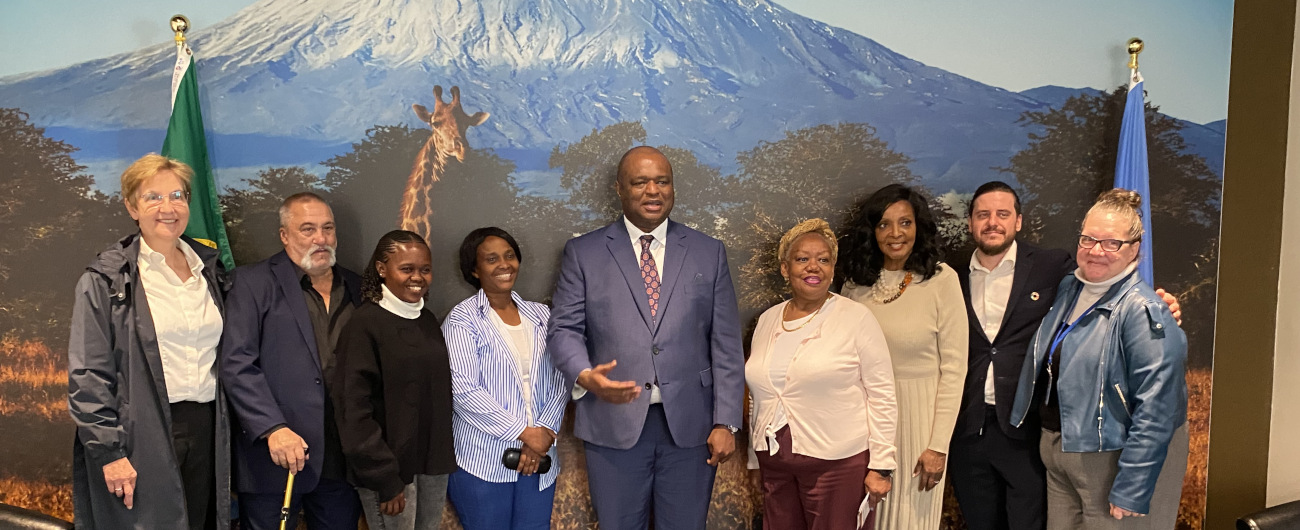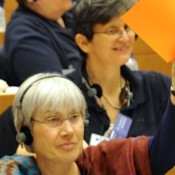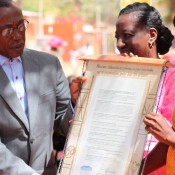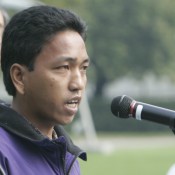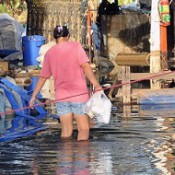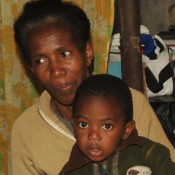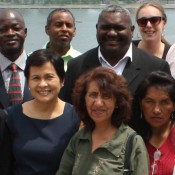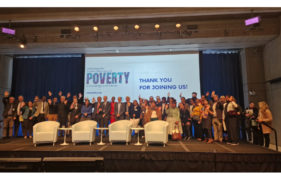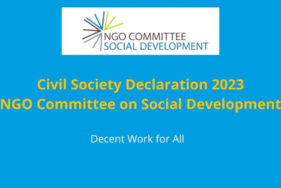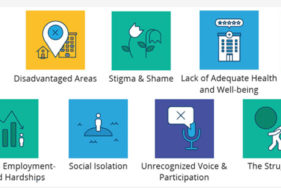International Advocacy
Striving together to end poverty.
ATD Fourth World strives to take the knowledge and aspirations of those most weighed down by persistent poverty to the heart of international institutions through focused efforts in international advocacy. The aim is to open spaces of dialogue in which those in poverty are not merely “invited to the table,” but are taken on as vital partners in constructing a more just world together.
ATD Fourth World has general consultative status at the United Nations Economic and Social Council (ECOSOC), UNICEF, UNESCO and the ILO. This gives greater weight to our work in the human rights field and other essential issues in the joint effort of striving together to end poverty and exclusion.
ATD Fourth World also has participative status at the Council of Europe and maintains a permanent delegation to the European Union.
At the beginning of 2024, the international relations and advocacy office of the ATD Fourth World Movement completed and approved its global strategy for international advocacy, following a months long consultation process. This effort involved a wide range of ATD members, including delegates to international institutions, volunteers, and allies with extensive advocacy experience. The process culminated in the identification of six key priorities for the movement’s advocacy strategy:
- Merging of Knowledge and Dimensions of Poverty: Promoting the merging of knowledge approach and recognizing the multidimensionality of poverty, to better understand and tackle poverty in its full complexity.
- Social and Environmental Justice: Addressing the intersection of poverty with environmental sustainability and advocating for policies that ensure justice for marginalized communities, both socially and environmentally.
- Childhood and Family: Promoting the rights and well-being of children and families, particularly those living in poverty, through policies and programs that support their development and dignity.
- Legal Identity: Ensuring that everyone, particularly the most disadvantaged, has access to legal identity, which is crucial for claiming rights and accessing services.
- Dignified Work and Social Protection: Advocating for decent working conditions and robust social protection systems to support individuals and families living in poverty.
- Gender: Highlighting the gendered dimensions of poverty and ensuring that advocacy efforts address the specific challenges faced by women and gender-diverse individuals in marginalized communities.
This strategy will guide the movement’s work in advocating for systemic changes at the international level to fight poverty.
-
European Institutions
ATD Fourth World maintains a permanent delegation to the European Union and the Council of (...)
-
Political Engagement
People living in poverty and extreme poverty must have a voice at the political level (...)
-
United Nations
The United Nations International Relations team, with offices in New York City and Geneva, strives (...)
-
Social and Environmental Justice
A priority of ATD Fourth World is to “Promote a society that respects people and (...)
-
Guiding Principles on Extreme Poverty and Human Rights
“People living in extreme poverty are… disproportionately affected by many human rights violations. Discrimination against (...)
-
Post-2015 Development Goals
In September 2015, the UN adopted the 17 Sustainable Development Goals (SDGs) to be achieved (...)
Latest Articles
The World Bank and the IMF Address the Hidden Dimensions of Poverty in Knowledge and Policies
On February 15, 2024, ATD Fourth World delegates from Bolivia, Tanzania, the United Kingdom, and the United States gathered at (…) Read more
Towards a Renewed Social Contract
Excerpt from the Civil Society Declaration 2023 by the NGO Committee on Social Development Each year ATD Fourth World participates (…) Read more
Teaching Partnership, Participation: New Training Programs in the US
“People with a lived experience of poverty must be part of the decision-making process in creating solutions — as legitimate, (…) Read more


